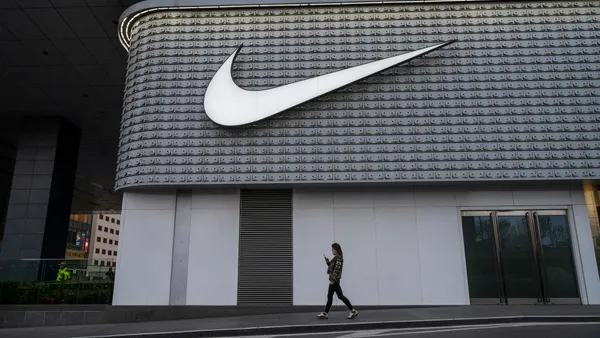Dive Brief:
-
Neiman Marcus on Friday reported second quarter fiscal 2018 total revenues rose 6.2% to $1.48 billion, from $1.40 billion in the year-ago period. Same-store sales rose 6.7%, and increases were "supported by the company’s ‘Digital First’ strategy and recent investments in new technologies and marketing tools."
-
In a move it’s made previously, the department store downgraded the value of its brand, in fiscal 2017 recording non-cash impairment charges of $153.8 million "to state certain intangible and other assets, primarily related to its Neiman Marcus brand, to their estimated fair value," according to a press release.
-
A provisional non-cash income tax benefit of $384.1 million and the non-cash impairment charges of $153.8 million led to a profit of $372.5 million, up from a net loss of $117.1 million in the prior year. Adjusted EBITDA for the quarter was $154.8 million, up from $126.8 million in the prior year, the company also said.
Dive Insight:
In his statement Friday, newly minted CEO Geoffroy van Raemdonck said he is excited by the department store's momentum. The company's "Digital First" strategy was unveiled in October to further its position in the luxury retail space "by anticipating customers' evolving behaviors and engaging them more deeply to drive traffic online and in stores." According to the company, those investments seem to be paying off.
The company, however, is still confronting deep debt troubles. The upscale department store retailer's debt-to-equity ratio more than doubled between October 2016 and October 2017, as did its liabilities-to-equities ratio, according to a recent report from CreditRiskMonitor, which tracks the financial risks associated with companies with publicly traded stock or bonds.
Neiman's total debt stood at $4.8 billion at the end of October 2017, according to CreditRiskMonitor, which also noted successive quarterly losses, adding up to $617.9 million, since first quarter 2017 (which ended Oct. 29 of 2016). As a result, Neiman bankruptcy risk in the next year is as high as 50%, according to that report. Also in October, Fitch Ratings included Neiman Marcus on a secondary "loans of concern" list, indicating some default risk over a total outstanding loan balance of $2.8 billion.
Neiman Marcus has taken painful steps to return to profitability and boost sales. The department store cut 225 jobs in July and decided to scale back its off-price footprint by about 25% to focus on its position as a luxury seller. The company talked with Hudson's Bay about a potential buyout, but walked away. In recent years, Neiman had also floated a possible IPO, but reversed course.













